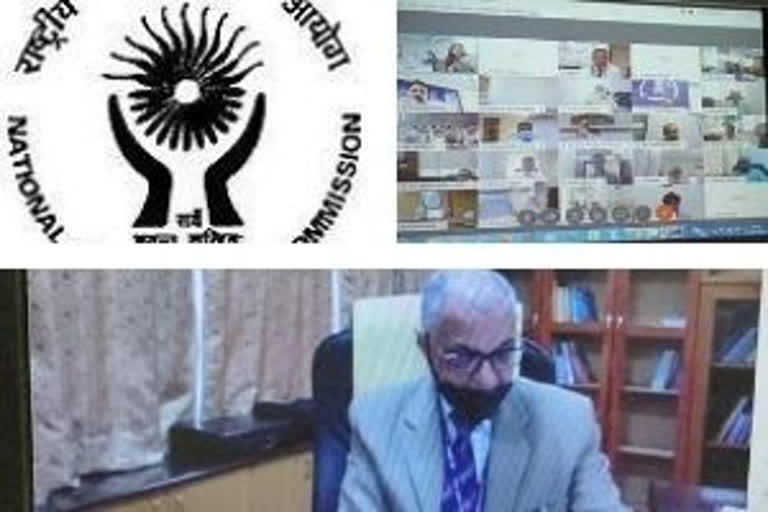New Delhi: National Human rights Commission (NHRC) India organised webinar on Forensic Science setup in India and related issues concluded with the most commonly expressed view that the country lacks the adequate number of Forensic laboratories and manpower to handle them.
Several important suggestions emerged during the online discussions. Earlier, inaugurating the webinar, the NHRC Member, Mr. Justice P. C. Pant said that Forensic Examination is very important evidence in criminal justice system for successful administration of justice. He said that there is also a need for the judiciary and investigating agencies to be aware of general procedures and principles followed in forensics while collecting, examining the physical evidences from the scene of occurrence. There is also a need to create awareness among media and general public about not disclosing sensitive information, techniques that can hinder the process of investigation or trial.
Jaideep Govind, secretary general said that the objective of the webinar is to sensitize all the stakeholders about the functioning of the important fields of Forensic Science, especially in the context of custodial death cases, encounter death cases and investigation of cases involving serious human rights violations. The Commission deals with a number of cases related to deaths in police and judicial custody as well as encounters.
Also read: Former bureaucrats move SC for inquiry into Covid-19 mismanagement
The forensic report is one of the important reports, among others, to decide the case of human rights violation. Punya Salila Srivastava, JS, MHA spoke on the large amount of funds given to States and Central forensic labs for building capacities. How forensic infrastructure is being built up under police modernisation scheme and Nirbhaya fund.
Centers of excellence like University at Gujarat, Gandhinagar are being built up after the Criminal law amendment act 2018. More than 200 crore has been sanctioned in last two years for forensic science.
Several suggestions emerge during the online discussions including need to bring in uniformity under an SOP for conducting Forensic Examination and fill in all the vacant posts in Forensic Science laboratories, provide them with sufficient infrastructure and funds.
The suggestions to introduce Forensic study and training in various institutions were also given. Introducing Forensic law studies as a separate course curriculum in integrated BSc (Forensic) LLB and in MBBS. Suggestion to increase the number of Forensic Labs in proportion to the number of cases to examine to avoid delay in administering justice and creating the post of District Medico Legal expert, Introducing professionalism in the photography and videography of post mortem were added by panel.
More than 190 participants attended the webinar, besides NHRC members, representatives of chief secretaries and DGPs from all the States / UTs, Central and State Forensic Labs, National Forensic Universities, representatives from MHA, DFSS, BPR&D, NICFS, CBI, NIA, CBCID of states, State Police Academies were in attendance.


